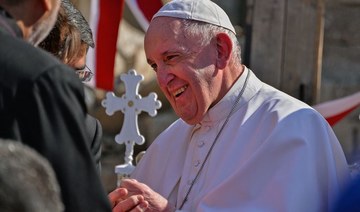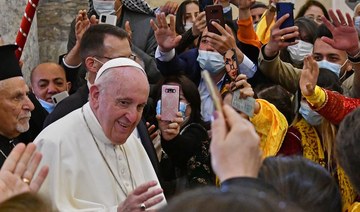VATICAN CITY: Pope Francis thanked the people of Iraq on Wednesday for allowing him to make his historic trip to the country, saying Iraqis deserve to live in peace.
In his weekly audience, the 84-year-old pope reflected on the packed three-day program that saw him travel throughout Iraq last weekend, offering encouragement to persecuted Christians and extending a hand to Shiite Muslims.
“After this visit, my soul is filled with gratitude – gratitude to God and to all those who made it possible,” he said, citing political and religious leaders.
These include top Shiite cleric Grand Ayatollah Ali Sistani, “with whom I had an unforgettable meeting.”
He said he heard first-hand of “wounds still open” from the destruction wrought on Iraq’s Christian communities, which have been decimated after decades of conflict.
“And at the same time, I saw around me the joy of welcoming Christ’s message,” he said.
“The Iraqi people have the right to live in peace. They have the right to rediscover the dignity that belongs to them.”
He condemned the “monster” of war, adding: “I ask myself, who sells arms to terrorists? Today, who sells them to terrorists?
“They are waging wars in other places as well, in Africa, and it’s a question that I want an answer to.”
But he noted that Iraqis “are trying hard to rebuild. The Muslims are inviting the Christians to return and together they are restoring churches and mosques. Fraternity is there.”
Pope Francis thanks Iraqis for visit, saying they deserve peace
https://arab.news/96agb
Pope Francis thanks Iraqis for visit, saying they deserve peace
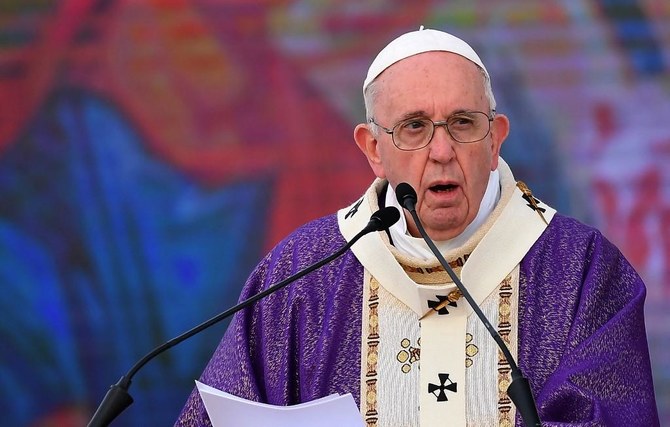
- ‘After this visit, my soul is filled with gratitude – gratitude to God and to all those who made it possible’
Tunisian bar association accuses policemen of torturing a lawyer during detention

- Lawyer Souad Boker said Zagrouba appeared on Wednesday before the investigating judge in a exhausted state
- Lawyer Mahdi Zagrouba was arrested after he criticized the president for detaining Sonia Dahmani, another lawyer, during the weekend
TUNIS: Tunisian lawyer Mahdi Zagrouba was tortured by police officers after being arrested on Monday, lawyers and a human rights organization said on Wednesday after he collapsed in court and was taken to a hospital.
The Interior Ministry did not immediately respond to a Reuters request for comment.
Lawyer Souad Boker said Zagrouba appeared on Wednesday before the investigating judge in a exhausted state, adding that “he mentioned the names of the policemen who tortured him before he suffered a collapse and coma.”
Witnesses and lawyers said that Zagrouba was taken to the hospital in an ambulance.
TAP state news agency quoted Zarouba’s attorney, Boubaker Ben Thabet, as saying Zagrouba had been subjected to “systematic torture” during his detention.
Toumi Ben Farhat, another lawyer representing Zagrouba, said his colleague “was subjected to extremely severe torture.”
Tunisian police stormed the bar association’s headquarters on Monday for the second time in two days and arrested Zagrouba, who has criticized the president, after detaining Sonia Dahmani, another lawyer, during the weekend.
Bassam Trifi, the head of the Tunisian League for Human Rights, said that “Zagrouba was subjected to brutal torture, and I personally witnessed the torture on his body.”
Without referring to the allegations, President Kais Saied said in a statement after a meeting with Minister of Justice Laila Jafel that the state is responsible for guaranteeing every prisoner the right to treatment that preserves his dignity.
The Bar Association said in a statement late on Wednesday that torture deserves criminal prosecution, and that it held the Ministry of Interior officers responsible. It said a strike was planned for Thursday.
Saied took office after free elections in 2019, but two years later he shut down the elected parliament and has ruled by decree.
The European Union said on Tuesday it was concerned about the wave of imprisonment of many civil society figures, journalists and political activists, and demanded clarifications from Tunisia.
Sudan facing ‘inferno’ of violence, crushing aid holdups: UN

- The grim situation is only expected to worsen
United Nations, US: Residents of conflict-hit Sudan are “trapped in an inferno of brutal violence” and increasingly at risk of famine due to the rainy season and blocked aid, the UN’s humanitarian coordinator for the country warned Wednesday.
Tens of thousands of people have died and millions have been displaced since war broke out in April 2023 between the army and the paramilitary Rapid Support Forces (RSF).
“Famine is closing in. Diseases are closing in. The fighting is closing in and there’s no end in sight,” Clementine Nkweta-Salami told a press conference.
The grim situation is only expected to worsen, with “just six weeks before the lean season sets in, when food becomes less available, and more expensive.”
Noting that more than four million people are facing potential famine, Nkweta-Salami added that the onset of the country’s rainy season means that “reaching people in need becomes even more difficult.”
The area’s planting season also “could fail if we aren’t able to procure and deliver seeds for farmers,” she said.
And “after more than a year of conflict, the people of Sudan are trapped in an inferno of brutal violence.”
“In short, the people of Sudan are in the path of a perfect storm that is growing more lethal by the day,” Nkweta-Salami warned, adding that the humanitarian community needs “unfettered access to reach people in need, wherever they are.”
The United Nations has expressed growing concern in recent days over reports of heavy fighting in densely populated areas as the RSF seeks control of El-Fasher, the last major city in the western Darfur region not under its control.
“Right now the humanitarian assistance they rely on can’t get through,” Nkweta-Salami said.
More than a dozen UN trucks loaded with medical equipment and food, which left Port Sudan on April 3, have still not reached El Fasher, she said, “due to insecurity and delays in getting clearances at checkpoints.”
Israel PM says no humanitarian crisis as hundreds of thousands flee Rafah

RAFAH, Palestinian Territories: Israeli Prime Minister Benjamin Netanyahu on Wednesday insisted there was no “humanitarian catastrophe” in Rafah, even as hundreds of thousands fled the south Gaza city amid intense fighting.
Hamas meanwhile insisted it would take part in any decision on the post-war government of Gaza as Palestinians marked the 76th anniversary of the “Nakba,” when around 760,000 Palestinians fled or were driven from their homes during the 1948 creation of Israel.
Israeli forces have bombed Hamas militants around Gaza’s far-southern city of Rafah, but clashes have also flared again in northern and central areas which Israeli troops first entered months ago.
The upsurge in urban combat has fueled US warnings that Israel, which launched its war after the October 7 Hamas attacks, risks being bogged down in years of counterinsurgency.
But despite previous threats by US President Joe Biden to withhold some arms deliveries over Netanyahu’s insistence on attacking Rafah, his administration informed Congress on Tuesday of a new $1 billion weapons package for Israel, official sources told AFP.
The European Union urged Israel to end its military operation in Rafah “immediately,” warning failure to do so would “inevitably put a heavy strain” on ties with the bloc.
But even as he announced that hundreds of thousands had been “evacuated,” Netanyahu insisted there was no humanitarian crisis in Rafah.
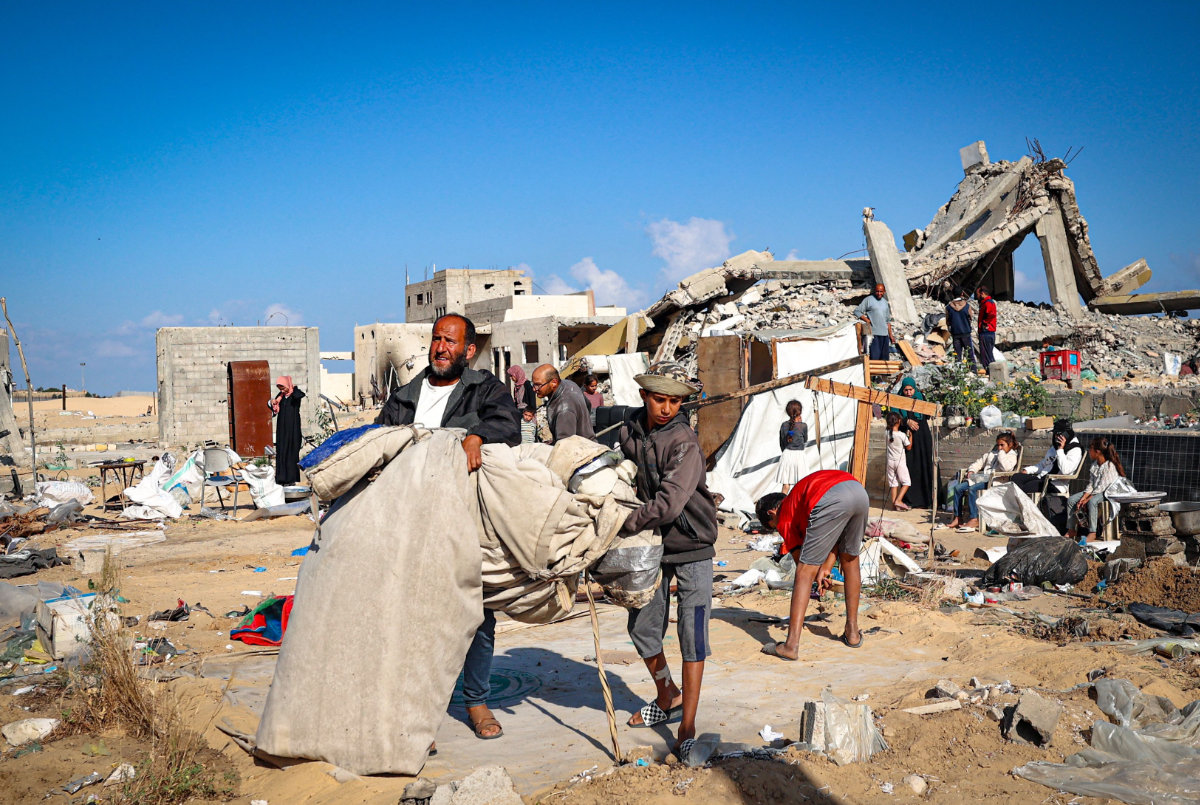
“Our responsible efforts are bearing fruit. So far, in Rafah, close to half a million people have been evacuated from the combat zones. The humanitarian catastrophe that was spoken about did not materialize, nor will it,” he said.
The United Nations agency for Palestinian refugees, UNWRA, meanwhile said “600K people have fled Rafah since military operations intensified.”
Nakba Day
The sight of desperate families carrying scant belongings through the ruins of war-scarred Gaza cities has evoked for many the events of the 1948 Nakba which translates from Arabic as “catastrophe.”
Hamas declared in a Nakba Day statement that “the ongoing suffering of millions of refugees inside Palestine and in the diaspora is directly attributed to the Zionist occupation.”
Hamas chief Ismail Haniyeh insisted meanwhile that the militant movement will be involved in deciding post-war rule in Gaza along with other Palestinian factions.
“We say that the Hamas movement is here to stay ... and it will be the movement and all national (Palestinian) factions who will decide the post-war rule in Gaza,” Haniyeh said in a televised address for Nakba.
He also said the fate of truce talks was uncertain because of Israel’s “insistence on occupying the Rafah crossing and on its expansion of the aggression” in the Palestinian territory.
“Any agreement must ensure a permanent ceasefire, comprehensive withdrawal (of Israeli forces) from all sectors of the Gaza Strip, a real deal for exchange of prisoners, the return of displaced persons, reconstruction and lifting the siege” of Gaza, Haniyeh said.
Thousands marched to mark the day in cities across the Israeli-occupied West Bank, waving Palestinian flags, wearing keffiyeh scarves and holding up symbolic keys as reminders of long-lost family homes.
Netanyahu has vowed to destroy Hamas and bring home hostages still held in Gaza.
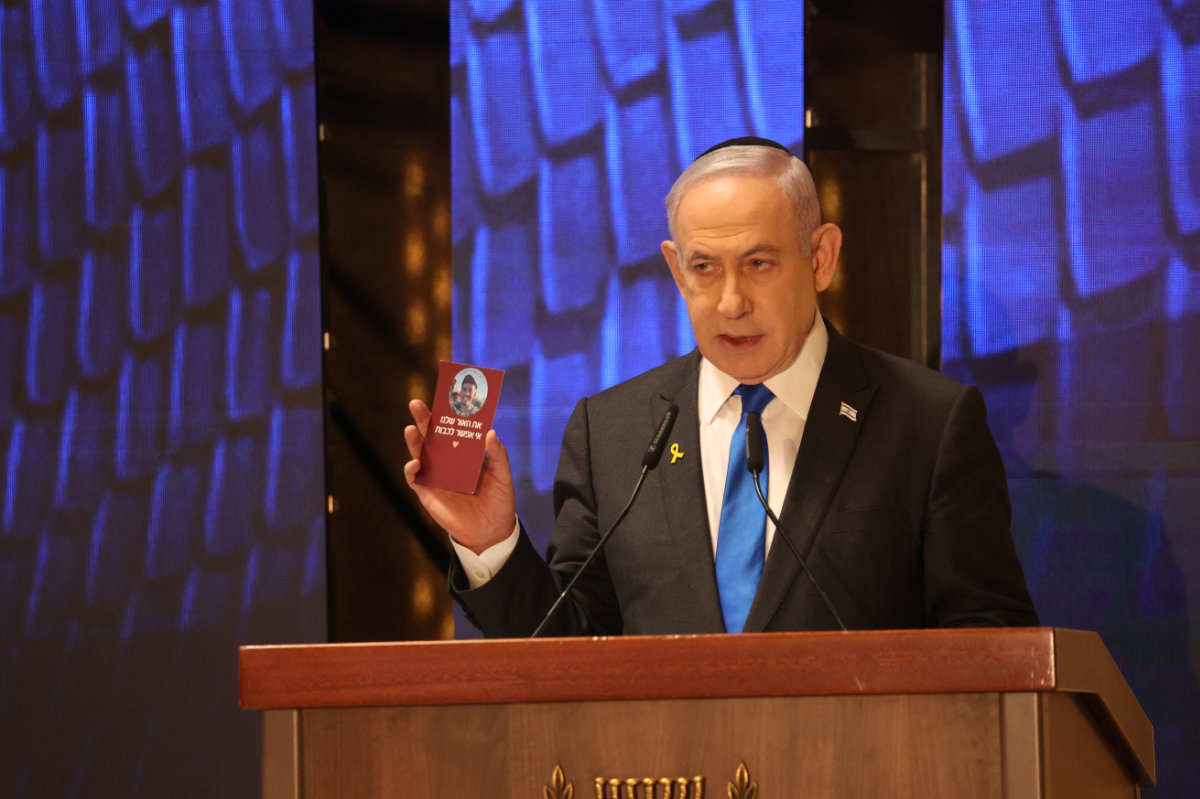
The United Nations agency for Palestinian refugees, UNWRA, meanwhile said “600K people have fled Rafah since military operations intensified.”
In a Wednesday interview with CNBC, Netanyahu addressed the tensions with Biden over the offensive, saying: “Yes, we do have a disagreement on Gaza. Rather, on Rafah. But we have to do what we have to do.”
Washington has also repeatedly urged Israel to work on a post-war plan for Gaza and supports the goal of a two-state solution, which Netanyahu and his far-right allies strongly oppose.
US State Department spokesman Vedant Patel said without a political plan, Palestinian militants “will keep coming back” trapping all sides in “this continued cycle of violence.”
Israeli Defense Minister Yoav Gallant on Wednesday said he would “not agree to the establishment of an Israeli military administration in Gaza, Israel must not have civilian control over the Gaza Strip.”
The war broke out after Hamas’s October 7 attack on southern Israel which resulted in the deaths of more than 1,170 people, mostly civilians, according to an AFP tally of Israeli official figures.
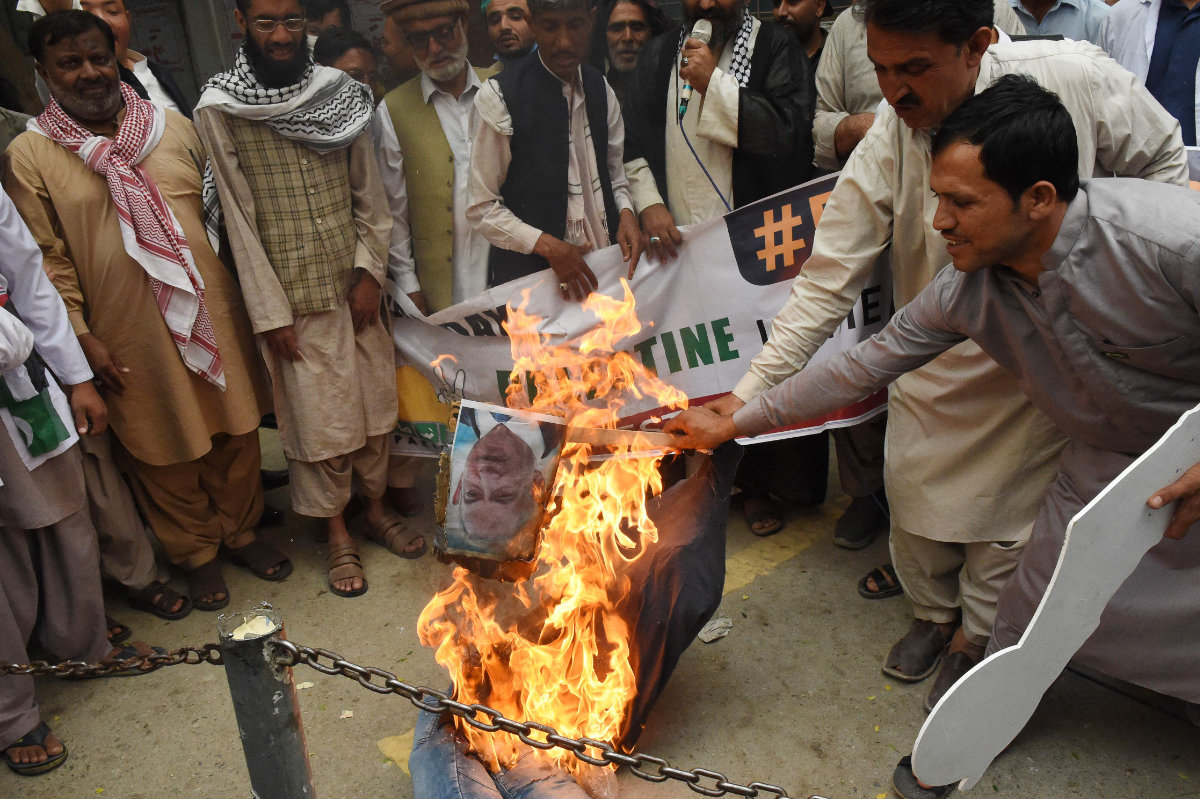
The militants also seized about 250 hostages, 128 of whom Israel estimates remain in Gaza, including 36 the military says are dead.
Israel’s military retaliation has killed at least 35,233 people, mostly civilians, according to the Gaza health ministry, and an Israeli siege has brought dire food shortages and the threat of famine.
Clashes continue
The Israeli military said Wednesday its aircraft had “struck and eliminated approximately 80 terror targets” including military compounds, missile launchers and weapons depots.
It also reported battles in eastern Rafah and in Jabalia in northern Gaza, where it said it had killed militants, adding troops were also fighting in the Zeitun area.
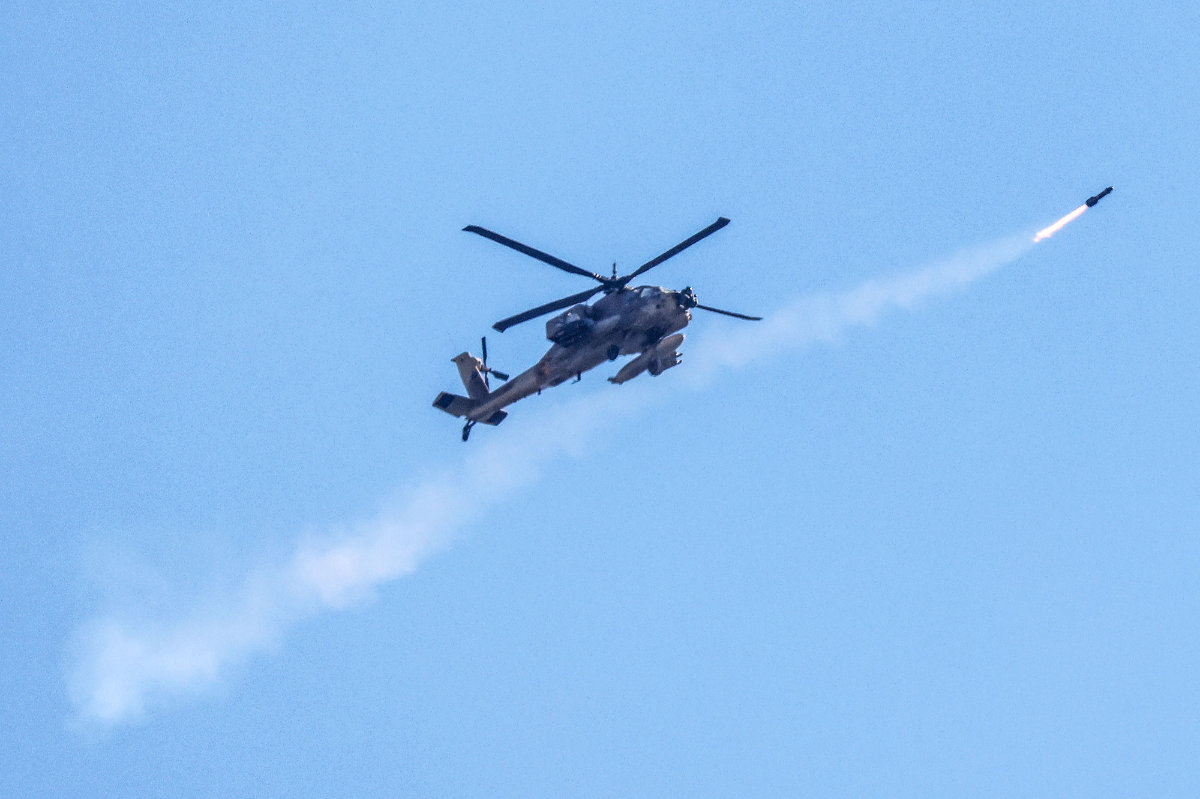
Hamas’s armed wing also reported its fighters were clashing with troops in the Jabalia area, much of which has been reduced to rubble.
At least five people were killed, including a woman and her child, in two Israeli air strikes on Gaza City overnight, Gaza’s civil defense agency said.
At the city’s Al-Ahli hospital, a wounded man, his bare chest smeared with blood, lay on a cot while outside several men placed a shrouded corpse in the shade of a tree.
Sporadic aid deliveries into Gaza by truck have slowed to a trickle since Israeli forces took control of the Gaza side of the Rafah crossing with Egypt last week.
A UK delivery of 100 tons of temporary shelter kits left Cyprus Wednesday on its way to a US-built pier in Gaza, Britain said.
Another convoy carrying humanitarian relief goods was ransacked by Israeli right-wing activists on Monday after it had crossed from Jordan through the West Bank.
Palestinians: Our ‘Nakba’ in 2023 is worst ever

- Thousands protest in West Bank, waving Palestinian flags, wearing keffiyeh scarves and holding up symbolic keys as reminders of long-lost family homes
GAZA: As the Gaza war raged on, Palestinians on Wednesday marked the anniversary of the Nakba, or “catastrophe,” of mass displacement during the creation of the state of Israel 76 years ago.
Thousands marched in cities across the Israeli-occupied West Bank, waving Palestinian flags, wearing keffiyeh scarves and holding up symbolic keys as reminders of long-lost family homes.
Inside the besieged Gaza Strip, where the Israel-Hamas war has ground on for more than seven months, scores more died in the fighting sparked by the Hamas attack of Oct. 7.
“Our ‘Nakba’ in 2023 is the worst ever,” said one displaced Gaza man, Mohammed Al-Farra, whose family fled their home in Khan Younis for the coastal area of Al-Mawasi.
“It is much harder than the Nakba of 1948.”
Palestinians everywhere have long mourned the events of that year when, during the war that led to the establishment of Israel, around 760,000 Palestinians fled or were driven from their homes.
But 42-year-old Farra, whose family was then displaced from Jaffa near Tel Aviv, said the current war is even harder.
“When your child is accustomed to all the comforts and luxuries, and suddenly, overnight, everything is taken away from him ... it is a big shock.”
Thousands marched in the West Bank city of Ramallah, as well as in Nablus, Hebron and elsewhere, carrying banners denouncing the occupation and protesting the war in Gaza.
“There’s pain for us, but of course more pain for Gazans,” said one protester, Manal Sarhan, 53, who has relatives in Israeli jails that have not been heard from since Oct. 7. “We’re living the Nakba a second time.”
Commemorations and marches — held a day after Israel’s Independence Day — come as the Gaza war has brought a massive death toll and the forced displaced of most of the territory’s 2.4 million people.
A devastating humanitarian crisis has plagued the territory, with the UN warning of looming famine in the north.
US working to get American doctors out of Gaza, White House says

- “We’re tracking this matter closely and working to get the impacted American citizens out of Gaza,” Jean-Pierre said
- The Biden administration has been warning Israel against a major military ground operation in Rafah
WASHINGTON: The Biden administration is working to get US doctors out of Gaza, White House Press Secretary Karine Jean-Pierre said on Wednesday, as fighting intensified in the seaside enclave.
A group of American doctors from the Palestinian American Medical Association told the Washington Post this week that they were stuck in Gaza after Israel closed the border crossing in the southern city of Rafah.
“We’re tracking this matter closely and working to get the impacted American citizens out of Gaza,” Jean-Pierre said.
Jean-Pierre said the United States was engaging directly with Israel on the matter.
The Biden administration has been warning Israel against a major military ground operation in Rafah, but Jean-Pierre said efforts to get the doctors out are continuing regardless of what happens there.
“We need to get them out. We want to get them out and it has nothing to do with anything else,” she said.
Israeli troops battled militants across Gaza on Wednesday, including in Rafah, which had been a refuge for civilians, in an upsurge of the more than 7-month-old war that has killed tens of thousands of Palestinians.
Gaza’s health care system has essentially collapsed since Israel began its military offensive there after the Oct. 7 cross-border attacks by Palestinian Hamas militants on Israelis.
Humanitarian workers sounded the alarm last week that the closure of the Rafah and Kerem Shalom crossings into Gaza could force aid operations to grind to a halt.
The Israeli assault on Gaza has destroyed hospitals across Gaza, including Al Shifa Hospital, the Gaza Strip’s largest before the war, and killed and injured health workers.



